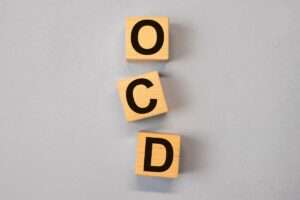Introduction
Obsessive-compulsive disorder (OCD) is a mental health condition characterized by intrusive thoughts and repetitive behaviors that can significantly impact daily life. While OCD has complex causes, including genetic and environmental factors, there are steps individuals can take to reduce their risk or manage early symptoms effectively. In this blog, we’ll explore seven actionable strategies for OCD prevention that promote mental well-being and resilience.
For individuals seeking treatment for OCD, consider consulting qualified mental health professionals such as:

1. Understand the Basics of OCD
Before adopting preventive strategies, it’s essential to grasp the fundamentals of OCD. This condition often manifests as a cycle of obsessive thoughts and compulsive actions performed to alleviate distress. Recognizing the signs early can help individuals seek timely support and prevent the condition from worsening.
For more detailed information on OCD and mental health, visit the National Institute of Mental Health (NIMH).
2. Prioritize Stress Management
Stress can exacerbate OCD Prevention symptoms or trigger them in individuals predisposed to the condition. Incorporating stress-reduction techniques into your daily routine can significantly lower the risk.
Strategies include:
- Practicing mindfulness meditation.
- Engaging in regular physical exercise.
- Developing a consistent sleep schedule.
Ongoing stress is a significant barrier to OCD prevention. According to the Centers for Disease Control and Prevention (CDC), managing stress can improve overall mental health and reduce the likelihood of developing related conditions.
3. Build a Supportive Social Network
Social isolation can increase vulnerability to mental health challenges, including OCD. A supportive network of friends, family, or mental health professionals can help individuals navigate stressors effectively.
Ways to build support include:
- Joining mental health support groups focused on OCD prevention.
- Openly discussing feelings and challenges with trusted individuals.
- Participating in group activities or hobbies to foster community connections.
The Substance Abuse and Mental Health Services Administration (SAMHSA) offers resources for building social support and accessing mental health assistance.

4. Recognize and Address Early Signs
Early detection of obsessive or compulsive tendencies is a key factor in prevention. If you or someone close notices persistent worrying thoughts or repetitive behaviors, consider seeking professional guidance.
OCD prevention depends on timely action. Seeking support during the early stages of symptoms can help prevent long-term impacts on daily life.
The World Health Organization (WHO) provides resources on recognizing mental health conditions and finding appropriate care.
5. Foster Healthy Cognitive Patterns
Cognitive-behavioral strategies can help individuals reframe negative thought patterns. Practices such as journaling, self-reflection, and problem-solving exercises can reduce obsessive tendencies.
For effective OCD prevention, activities that promote logical thinking and emotional regulation are essential. Mental health professionals often recommend exercises that strengthen resilience against intrusive thoughts.
Engaging in educational workshops or therapy sessions focused on mental resilience can also help develop healthy cognitive habits.
6. Limit Exposure to Triggers
Certain environmental factors, such as trauma, stress, or excessive responsibility, may trigger OCD symptoms in susceptible individuals. Identifying and managing these triggers is an essential aspect of prevention.
Practical steps include:
- Creating a balanced schedule to avoid burnout.
- Reducing exposure to environments or situations that evoke stress.
- Practicing relaxation techniques when faced with unavoidable triggers.
The National Alliance on Mental Illness (NAMI) offers tools for recognizing and managing mental health triggers.
7. Seek Professional Guidance When Needed
If preventive strategies aren’t enough, consulting a licensed mental health professional is crucial. Early therapy, counseling, or other non-invasive interventions can help address underlying issues before they progress.
Professional help is a cornerstone of OCD prevention. Psychologists and psychiatrists use evidence-based techniques to manage OCD symptoms effectively and provide support tailored to individual needs.
For more guidance, explore resources from the MentalHealth.gov website.

Conclusion
Preventing OCD involves adopting a balanced lifestyle, recognizing early signs, and seeking timely support. While OCD may not always be completely avoidable, these seven strategies can help reduce risk factors and empower individuals to take charge of their mental health.
Consistency is key—small steps taken every day can lead to lasting improvements. By fostering resilience, prioritizing self-care, and engaging with supportive networks, individuals can build a healthier future.
OCD prevention is not a one-time effort but an ongoing process that requires dedication to mental well-being. With early intervention, stress management, and professional guidance, it is possible to significantly reduce the risk of developing OCD symptoms. These preventive measures are a foundation for long-term mental health resilience and better quality of life.
For additional guidance, visit MentalHealth.gov, NIMH, or WHO.